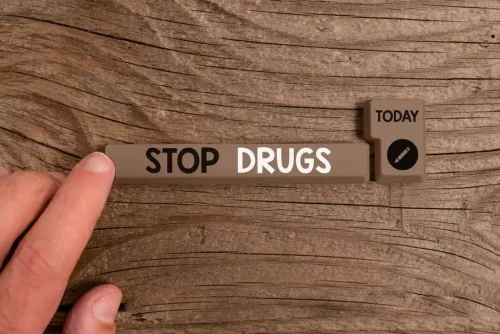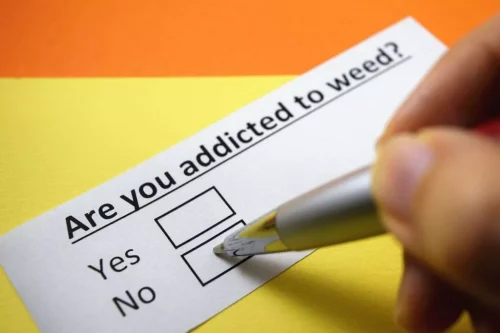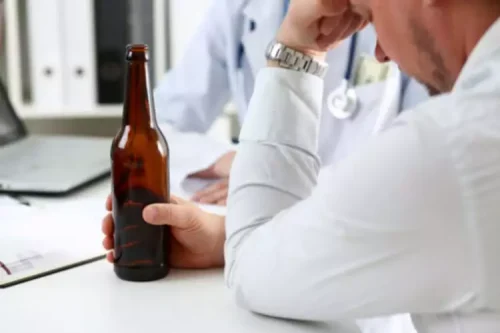
If you’ve recently stopped consuming alcohol and experienced shaking, talk to a doctor. It’s essential to seek medical attention to ensure the issue is unrelated to DTs. Before contacting your physician about alcohol tremors, we recommend gaining insight into the possibility you may need more than prescription medications for alcohol shakes.
- Studies have found that the device can bring some improvement for tremors.
- They can help you set up a plan to manage your alcohol withdrawal symptoms.
- Alcohol shakes, as evident by their name, are most common among individuals who suffer from alcohol addiction.
Types of Personality Disorders: A Comprehensive Guide to Personality Disorders and Treatment Options
If you suspect you or someone else may be experiencing withdrawal, seek medical attention immediately. You can anticipate insurance coverage for alcohol abuse treatment by filling out the free, confidential form at the bottom of this page. Engaging in appropriate lifestyle habits can also help improve alcohol shakes. Exercising regularly, eating a balanced diet, and managing stress with yoga, meditation, or other relaxation techniques can play an important role in reducing tremor frequency. Alcohol is a depressant, which is a substance that reduces activity in the brain and interferes with its communication pathways. Drinking alcoholic beverages slows down brain functions and inhibits certain chemicals that help regulate mood.

Essential tremor test
Chronic drinkers who abruptly stop drinking typically start experiencing symptoms of alcohol withdrawal within six to eight hours after their last drink. In addition to alcohol shakes, signs of alcohol addiction withdrawal also include profuse sweating, agitation, anxiety, heart palpitations, and nausea that lead to extreme vomiting episodes. Some people can develop a severe form of alcohol withdrawal known as delirium tremens, or DTs, that can cause a severe shaking or shivering. Other symptoms of DTs include hallucinations, agitation, high blood pressure, fever and even seizures.

What causes hangover shakes?
Crucially, delirium tremens can be life-threatening and often requires immediate medical intervention. Recognizing the distinction between minor shakes and the more severe delirium tremens is crucial in ensuring timely and appropriate care for individuals undergoing alcohol withdrawal. However, if you’re experiencing alcoholic shakes related to delirium tremens, it’s important to seek medical help immediately. In cases of long-term alcohol use, withdrawal can be very dangerous and cause serious issues, including high blood pressure, a dangerously high heart rate, seizures and hallucinations. Those affected by DT during the withdrawal period may develop permanent brain damage or neurological disorders if not supervised and treated by a team of medical professionals. The term alcoholic shakes is used to describe a common symptom of alcohol withdrawal in which the person experiences tremors or shakes.
- A rare but very serious syndrome called delirium tremens can occur during alcohol withdrawal.
- Each day, take time to revisit your recovery goals and the reasons you decided to stop using alcohol.
However, untreated DT can be dangerous, so a person at risk for DT should see a doctor if they get hangover shakes. However, it is best to contact a healthcare professional for help with severe symptoms or if there is a chance DT can occur. Hangover shakes can be a warning of more severe alcohol withdrawal symptoms to come. Our staff is prepared to help you focus on your physical health, so the detox process is as comfortable as possible. The Recovery Village Atlanta offers comprehensive addiction treatment for drug and alcohol addictions and co-occurring mental health conditions.
- Since there is an overlap of possible signs and symptoms, individuals may choose to contact a healthcare professional if they experience any of the above symptoms.
- A person can reduce their chance of hangover shakes by drinking less alcohol.
- Slow, deep breathing improves cardiovascular and respiratory health and lifts the mood.
- In severe cases, you may experience some symptoms for weeks to months.
- Alcohol is a depressant, which is a substance that reduces activity in the brain and interferes with its communication pathways.
- Your healthcare provider can treat these by infusing you (through an IV in your vein) with the necessary vitamins and minerals.
Attempting to navigate withdrawal symptoms without medical oversight can be risky. Detoxification in a medically supervised setting ensures that any complications are promptly addressed. Medication-assisted treatments, such as benzodiazepines, alcohol shakes can help ease withdrawal symptoms. Depending on the severity, someone undergoing professional detox may opt for residential treatments or outpatient options. In both scenarios, however, medical monitoring and treatment are paramount.

Distinguishing Between Minor Shakes and Delirium Tremens
This is the period in which delirium tremens is most likely to occur, which requires immediate medical attention. There is no exact timeline for alcohol withdrawal, and individual factors, such as the level of dependence on alcohol, will influence it. If you or someone you know shows signs of delirium tremens, go to the emergency room immediately.
- If alcohol is interfering with your health or your personal, financial, or professional life, consider quitting.
- The fluids can come from water, other drinks, and food, but approximately 80 percent should be from water and non-caffeinated drinks.
- Medical supervision, behavioral health treatment, and mutual-aid groups can help you through alcohol withdrawal and stay stopped.
- Alcohol shakes are reduced when you flush the toxins out of your system.
- Glutamate causes some common delirium tremens symptoms, such as a sudden, extreme spike in blood pressure, tremors, severe excitability, and seizures.
Build a Support Group

